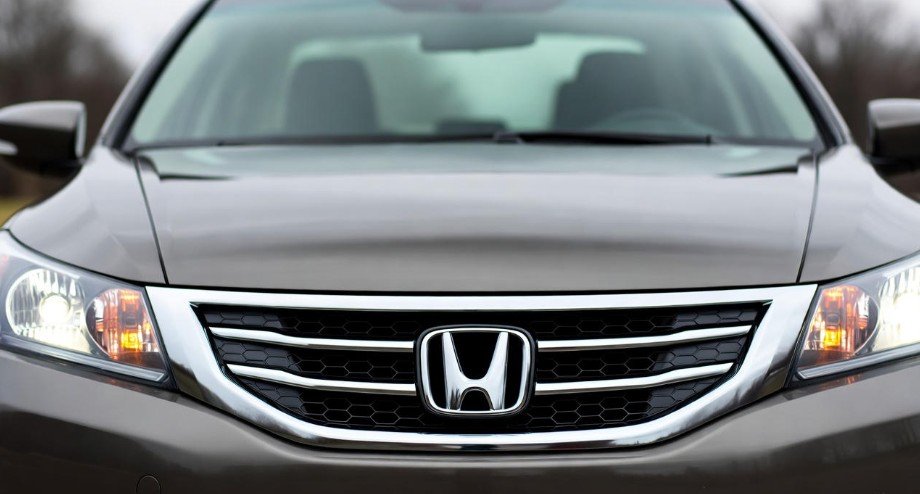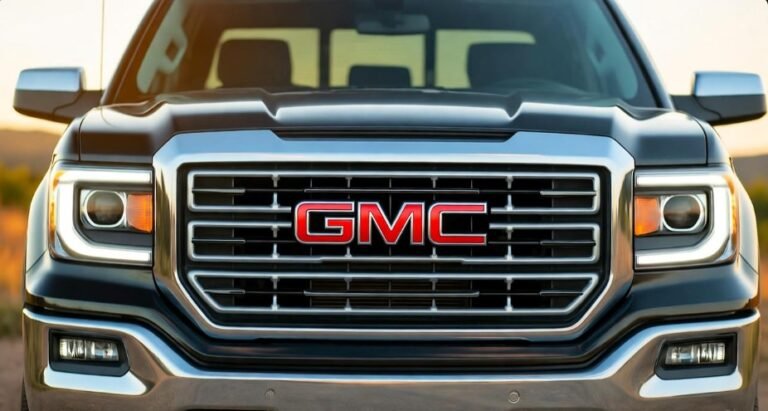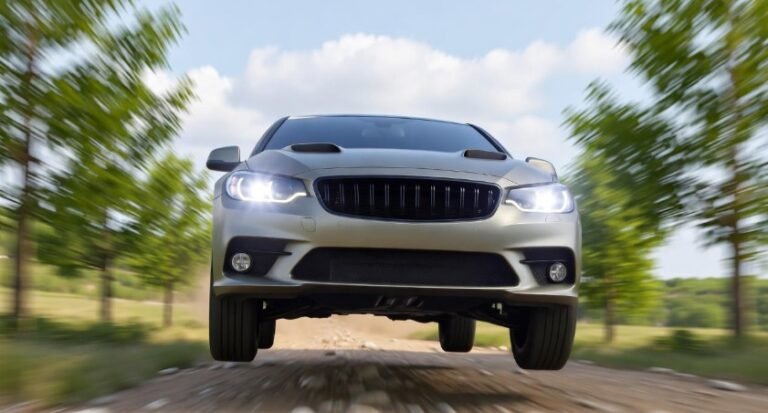Fixed: Honda Accord Won’t Start But Has Power

Experiencing a situation where your Honda Accord won’t start but has power can be incredibly frustrating. You turn the key, the dashboard lights illuminate, the radio works, even the interior fans spin—but the engine refuses to roar to life. It’s one of those moments that makes you wonder if your car is playing a cruel prank. While having power is a good sign that your battery isn’t completely dead, it doesn’t always mean the engine will start. The problem usually lies deeper, often in the starter motor, ignition system, or fuel delivery components. Understanding why your car behaves this way can save you time, money, and unnecessary stress.
When faced with this issue, the first thing to remember is that power and cranking are two separate things. Your car can have electrical power, which runs lights, electronics, and accessories, yet fail to start the engine. This distinction is crucial because it helps narrow down the problem to specific mechanical or electrical components rather than assuming a complete system failure. Many Honda Accord owners have experienced this exact problem, and surprisingly, the fix can be straightforward if approached systematically.
Common Causes Why Your Honda Accord Won’t Start
There isn’t a single reason why a Honda Accord won’t start but has power. Cars are complex machines, and multiple factors can prevent the engine from cranking even when the battery and electronics seem fine. Let’s break down the most common culprits:
-
Dead or Weak Battery: Sometimes, the battery has enough juice to power lights but not enough to turn over the engine.
-
Faulty Starter Motor: The starter motor is responsible for initiating the combustion process. If it fails, the engine won’t crank.
-
Ignition System Problems: Defective ignition switches, coils, or spark plugs can prevent the engine from firing.
-
Fuel System Issues: Clogged fuel filters, a malfunctioning fuel pump, or dirty injectors can stop fuel from reaching the engine.
-
Engine Immobilizer Malfunction: Modern Honda Accords have immobilizers that prevent theft. If the system malfunctions, the car won’t start.
-
Alternator Failure: While this primarily affects battery charging, a weak alternator can contribute to starting problems over time.
Each of these components plays a specific role in starting your car. Understanding their function is key to diagnosing why your Honda Accord won’t start but has power.
Diagnosing the Problem
Before panicking, take a step back and approach the issue systematically. Diagnosing a Honda Accord that won’t start but has power doesn’t always require a mechanic immediately. Here’s a simple roadmap:
-
Check Battery Voltage: Even if the car has power, measure the voltage. A healthy battery should read around 12.6 volts when the car is off.
-
Test the Starter Motor: Listen for a clicking sound when turning the key. No click might indicate a dead starter, while repeated clicks could mean a weak battery or bad connection.
-
Inspect the Fuel System: Make sure fuel is reaching the engine. A clogged filter or faulty fuel pump will prevent starting even if the battery is fine.
-
Check the Ignition System: Look at spark plugs, ignition coils, and wires for damage or corrosion. Without a proper spark, the engine cannot fire.
-
Verify Engine Immobilizer Function: If the security system fails, the car may refuse to start. Try using a spare key or resetting the system if possible.
-
Assess the Alternator: Though less likely, a failing alternator can result in insufficient battery charge, contributing to starting issues.
By following these steps, you can narrow down the culprit without replacing parts blindly, saving both time and money.
Troubleshooting a Honda Accord That Won’t Start
Once you’ve identified the potential areas causing trouble, the next step is troubleshooting. Here’s how you can approach it in a structured way:
-
Battery Issues: If your battery is weak, try jump-starting the car. Ensure the battery terminals are clean and tight. Sometimes corrosion prevents the battery from delivering enough power to the starter.
-
Starter Motor Problems: If jump-starting doesn’t help, the starter motor may need replacement. Tapping the starter gently with a wrench sometimes works temporarily if it’s stuck.
-
Fuel Delivery Troubles: Check if you hear the fuel pump priming when turning the key. If not, inspect the pump relay or fuse. Replacing the fuel filter is a simple preventive step.
-
Ignition System Troubles: Remove a spark plug to see if it sparks while cranking. No spark may indicate a faulty coil or wiring issue.
-
Engine Immobilizer: If the immobilizer is suspected, try using a different key or consult the manual for reset instructions. Some cases may require professional reprogramming.
-
Alternator Check: A failing alternator can be tested with a multimeter. If voltage drops below 12 volts while cranking, consider replacing the alternator.
These steps ensure that you are addressing the root cause rather than guessing, which is often more cost-effective.
Can a Honda Accord Start With Power But Not Turn Over?
Many people get confused when their Honda Accord has power but won’t crank. Power simply means electrical systems are active—it doesn’t guarantee engine cranking. Common reasons for this scenario include:
-
Weak Battery: Enough to run electronics but not the starter.
-
Faulty Ignition Switch: Prevents electrical flow to the starter motor.
-
Broken Starter Motor: Stops the engine from engaging altogether.
In this case, solutions range from jump-starting or replacing the battery to repairing or replacing the starter or ignition switch. Consulting a professional can help if you are unsure, but basic checks can often reveal the problem.
Table: Quick Troubleshooting Checklist
| Symptom | Possible Cause | Quick Fix |
|---|---|---|
| Lights work, engine silent | Weak battery | Jump-start or replace battery |
| Clicking sound, no crank | Starter motor | Replace or repair starter |
| Engine cranks, no start | Ignition/fuel issue | Check spark plugs, coils, fuel pump |
| Security light flashing | Engine immobilizer | Reset or reprogram key |
| Battery dies quickly | Alternator | Test and replace alternator |
This table gives a bird’s-eye view of the problem, helping you quickly identify likely causes of your Honda Accord not starting but having power.
How to Fix a Honda Accord That Has Power But Won’t Start
Dealing with a Honda Accord that won’t start but has power can feel like a puzzle, but the solution usually lies in understanding which system is failing. Let’s go through some common scenarios and practical fixes:
Scenario 1: Dead or Weak Battery
Even if your dashboard lights are on, the battery may not have enough power to crank the engine. A jump-start is often the first solution, but if the battery is old or repeatedly fails, replacing it is the safest choice. While at it, check the battery terminals for corrosion. Clean connections ensure better power delivery and prevent similar problems in the future.
Scenario 2: Faulty Starter Motor
If jump-starting doesn’t help, the starter motor might be at fault. Symptoms include a single click or grinding sound when turning the key. In some cases, lightly tapping the starter with a wrench can temporarily free it, but replacement is usually required for a permanent fix. Always ensure connections to the starter are tight and clean before replacing it.
Scenario 3: Fuel System Issues
A clogged fuel filter, malfunctioning fuel pump, or dirty injectors can stop your Honda Accord from starting despite power. Listen for a humming sound when turning the key—if you don’t hear it, check the fuel pump relay and fuses. Replacing the fuel filter and cleaning the injectors can restore proper fuel flow, allowing your engine to start reliably.
Scenario 4: Ignition System Problems
Faulty spark plugs, coils, or ignition wires can prevent the engine from firing. Remove a spark plug to test for a spark while cranking. If there’s no spark, replace the affected component. Regular inspection of ignition components is essential because wear and heat can degrade them over time, leading to starting issues.
Scenario 5: Engine Immobilizer Malfunction
If your security system fails, your Honda may refuse to start. A flashing immobilizer light often indicates this. Try using a spare key, or consult your owner’s manual for reset instructions. In some cases, a professional may need to reprogram the key or immobilizer module to restore normal operation.
Scenario 6: Alternator Problems
A failing alternator can eventually lead to insufficient battery charge. Test the alternator voltage with a multimeter; anything below 12 volts during cranking indicates it may need replacement. While alternator failure doesn’t usually prevent starting immediately, it can contribute to gradual electrical issues that complicate starting.
By methodically addressing each scenario, you can restore your Honda Accord’s ability to start without unnecessary trial and error.
Preventive Tips to Avoid Starting Issues
Prevention is always better than repair. Here are some actionable tips to keep your Honda Accord starting reliably:
-
Regular Battery Checks: Test the battery voltage every few months and replace it when necessary.
-
Clean Connections: Ensure battery terminals and starter connections are free of corrosion.
-
Fuel Quality: Use high-quality fuel to avoid clogging injectors and filters.
-
Ignition Maintenance: Replace spark plugs and coils on schedule to prevent engine misfires.
-
Protect Against Weather: Extreme temperatures can impact both battery and engine performance. Parking in a garage or using a battery warmer in winter helps.
-
Scheduled Servicing: Routine inspections by a certified mechanic can catch minor issues before they turn into major problems.
Implementing these tips not only prevents starting issues but also prolongs the life of your Honda Accord.
FAQs About Honda Accord Not Starting
1. Why does my Honda Accord have power but won’t start?
This usually points to a starter motor, ignition, or fuel system issue. Even with battery power, if the engine doesn’t crank or fire, one of these systems is likely failing.
2. Can a bad alternator cause my car not to start?
Yes, though less common. A weak alternator can prevent the battery from maintaining sufficient charge, eventually affecting engine starting.
3. How do I know if the starter motor is bad?
Listen for a single click or grinding sound when turning the key. A lack of response may indicate a faulty starter motor.
4. Can I fix a Honda Accord that won’t start myself?
Basic troubleshooting, like checking battery voltage, cleaning terminals, or testing spark plugs, can be done at home. For complex issues, consult a professional.
5. How much does it cost to fix a Honda Accord that won’t start?
Costs vary depending on the culprit: battery replacement ($100-$200), starter motor ($300-$500), ignition components ($100-$300), or alternator ($400-$600). Labor charges vary by location.
6. What role does the engine immobilizer play in starting problems?
It prevents unauthorized starting. If the system malfunctions, your car may refuse to start even if everything else is fine.
7. Why does my Honda Accord start sometimes but not always?
Intermittent starting usually points to an aging battery, failing starter, or loose electrical connections. Consistent inspection and maintenance can solve the problem.
8. Can extreme weather affect my Honda Accord starting?
Yes. Cold weather can reduce battery efficiency, and excessive heat can affect ignition components and fuel delivery.
Conclusion
Experiencing a Honda Accord that won’t start but has power can feel overwhelming, but the solution lies in methodical diagnosis. Start with the basics: check the battery, starter motor, and connections. Then move to fuel delivery, ignition components, engine immobilizer, and alternator. By approaching the problem step by step, you reduce guesswork and prevent unnecessary part replacements.
Remember, regular maintenance is your best defense against these issues. Checking batteries, keeping ignition systems clean, and using high-quality fuel can prevent a frustrating day when your car refuses to start. And if at any point the problem seems beyond your expertise, consulting a professional mechanic ensures safety and proper repairs. With patience and the right approach, your Honda Accord will be back on the road, starting reliably every time.
By understanding and acting on these steps, you can confidently say your Honda Accord won’t start but has power is no longer a mystery—it’s a problem with a solution.






